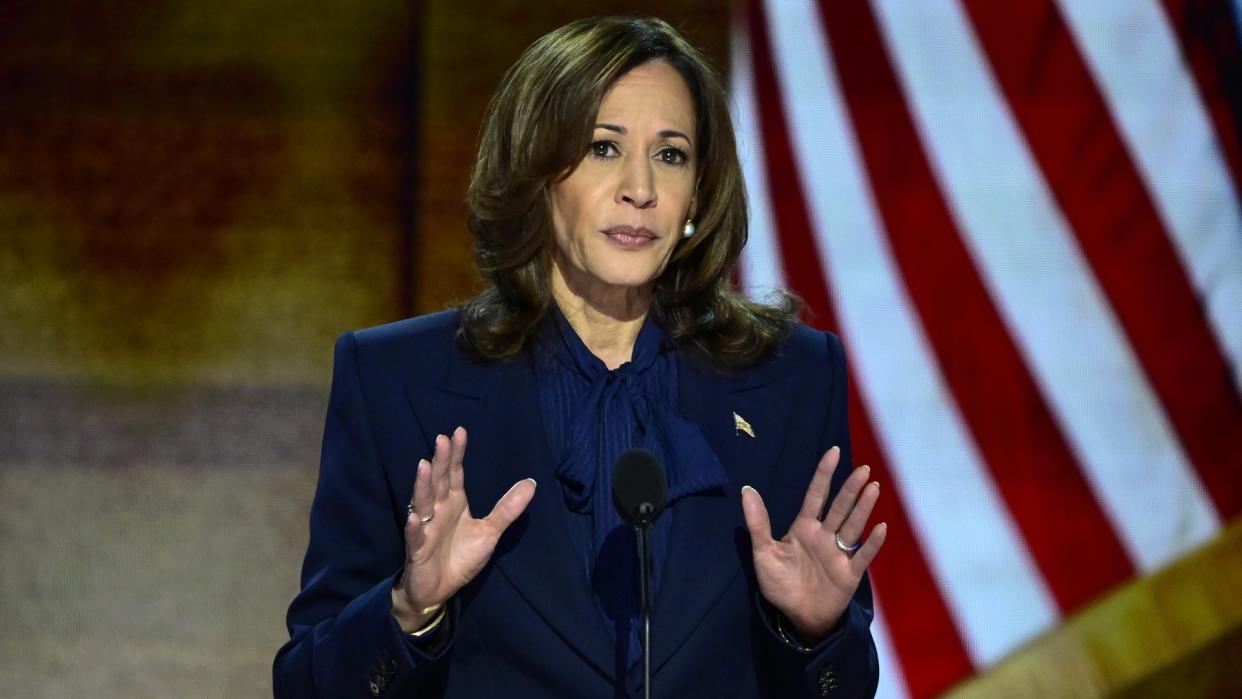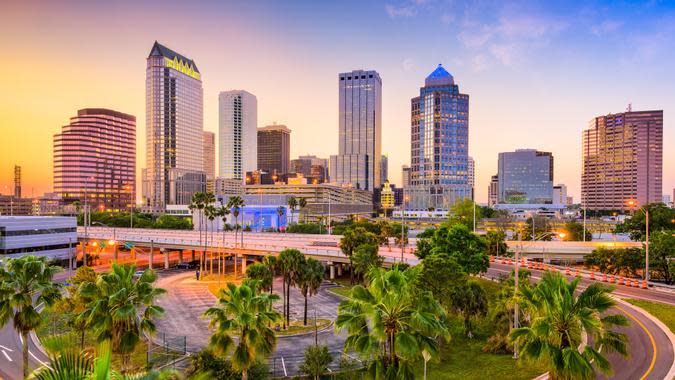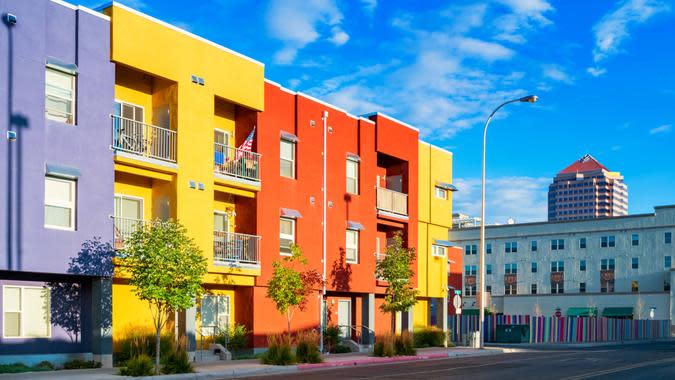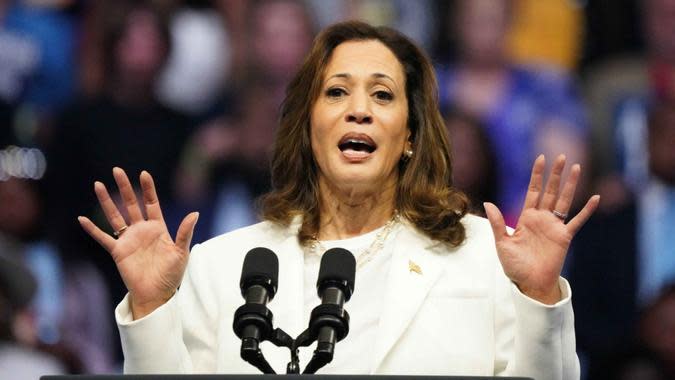7 States Where Upper-Class Paychecks Could Suffer If Kamala Harris Wins in November

As the November election approaches, high-income earners across the country are closely watching the potential impacts of a Kamala Harris presidency on their paychecks. While changes in tax policy could affect wealthy individuals nationwide, experts suggest that residents of certain states might feel a more significant pinch.
Read Next: 5 Things You Should Stop Wasting Money on If Kamala Harris Wins in November, According to Experts
Check Out: 9 Things You Must Do To Grow Your Wealth in 2024
GOBankingRates spoke with financial experts to find out the states where upper-class paychecks could see the most changes if Harris wins the election.

California and New York: Double Taxation Whammy
Cliff Ambrose, FRC, founder and wealth manager at Apex Wealth, pointed out that states with already high tax burdens could see the most dramatic effects.
“If Kamala Harris wins, states like California and New York are likely to see upper-class paychecks take a hit,” Ambrose said. “Both states already have high state income taxes, and Harris’ proposed tax increases on higher earners could further reduce take-home pay for the wealthy.”
Anthony DeLuca, CFP and expert for Annuity.org, echoed this sentiment, noting that “any state that already holds state income tax will become quite burdensome to any upper-class member.”
He specifically highlighted New York, where residents could potentially face “a 43.9% federal-state capital gains tax” under a Harris administration.
The expert added that “New York and California host the most S&P 500 Headquarters.” This concentration of major corporations in high-tax states could possibly lead to broader economic impacts.
Consider This: I’m an Economist — My Prediction for Household Incomes in 2025 If Trump Wins the Election
Find Out: What a Trump Presidency Could Mean for Social Security in 2025

Florida: Federal Tax Impact
States without income tax might not be immune to changes. Ambrose said, “In states like Florida, which doesn’t have a state income tax, the impact could come from federal tax increases rather than state-level changes.”
This could mean that upper-class residents in tax-friendly states might still see changes in their paychecks due to potential federal policy shifts.
Learn More: Trump Wants To Eliminate Income Taxes — How Would That Impact You If You Are Retired?

New Jersey and Massachusetts: High-Tax States
DeLuca added New Jersey and Massachusetts to the list of states where upper-class paychecks could potentially be affected. He said these states, along with New York and California, “will rise above the 40% mark” in terms of combined federal and state tax rates for high earners.

Wyoming and New Mexico: Energy Policy Impacts
While much of the focus is on income and capital gains taxes, DeLuca pointed out another important factor: energy policy. States that are reliant on fossil fuel industries could see some economic shifts under a Harris administration.
“Wyoming produces 41% of U.S. coal production,” he shared. “Any employer or family business grounded in this industry would be at serious risk for [Harris’] economic and energy administration ideas.”
Similarly, he said that New Mexico, which “produced 13% of the total U.S. crude oil in 2022,” could possibly face challenges if funding is redirected to alternative energy sources.

The Broader Picture
Of course, it’s important to know that these potential changes are likely part of a bigger policy vision. Harris’ proposed tax increases on higher earners are aimed at funding programs like healthcare and infrastructure, which could have wide-reaching effects on the overall economy.
As DeLuca said, many of the states that could see the biggest impact on upper-class paychecks are also major contributors to the national GDP. The interplay between tax policy, economic growth and income distribution is complex and multifaceted.
And perhaps most importantly, it’s good to remember that campaign proposals don’t always translate directly into policy, and any changes would need to pass through Congress.
Editor’s note on election coverage: GOBankingRates is nonpartisan and strives to cover all aspects of the economy objectively and present balanced reports on politically focused finance stories. For more coverage on this topic, please check out 7 States Where Upper-Class Paychecks Could Benefit Most If Trump Wins in November.
More From GOBankingRates
7 Reasons A Financial Advisor Could Boost Your Savings in 2024
8 Rare Coins Worth Millions That Are Highly Coveted by Coin Collectors
This article originally appeared on GOBankingRates.com: 7 States Where Upper-Class Paychecks Could Suffer If Kamala Harris Wins in November






